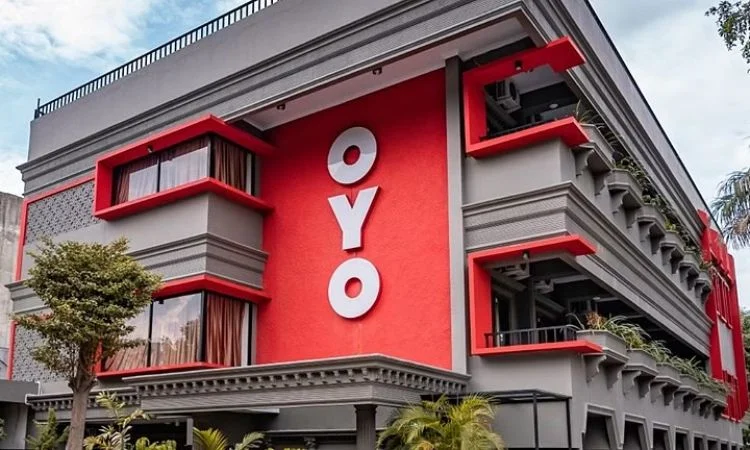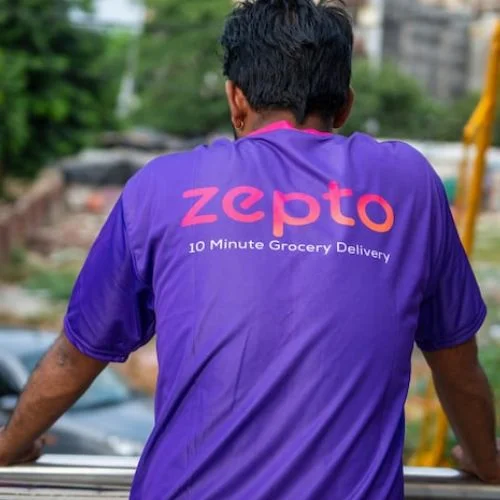Over the last few years, India has emerged as an innovation and startup hub of the world. According to the startup ecosystem in the country, many firms have been able to go through the challenge of sustaining themselves not only in their country but across the international market.
The future is here and today we’ll take you through the Indian startup ecosystem and how they dominate foreign territories.
Why is India all set to become the Startup Capital of the World?
This is not just a coincidence; India is fast becoming the hub of startups.
Several factors have contributed to this growth:
Talent hub: India is home to a vast population of talented workforce, or especially so within the information technology space.
Cost-effective: This may not be very far from the truth, as one can set up a business in India at sometimes significantly lower than the cost of countries around it.
Government Support: The Indian government has quite recently introduced measures in support of startups.
Internet Boom: Most Indians are going online, providing a massive opportunity to companies in the digital economy.
Increased Funding: The funding opportunities are equally rich thanks to Indian investors as well as their counterparts from other nations.
Here below are the Top 10 Successful Indian Startups That Went International
| Startup | Key Success Factors |
| Ola | Localized services (auto-rickshaws), food delivery, constant expansion, unicorn status valued at $6.5 billion (2019). |
| Zomato | Started as a menu-sharing platform, expanded to food delivery, restaurant reservations, and regionalized market strategies. |
| Cleartrip | Focused on user-friendly travel booking, expanded to accommodation and local transport, holds 60% market share in UAE’s online travel market. |
| OYO | Standardized budget hotel rooms, tech integration for bookings, leadership in China’s hospitality market. |
| Bira 91 | Focused on modern, youthful branding, created unique beer tastes, and saw rapid global growth in the craft beer market. |
| BYJU’S | Revolutionized online education, gamified learning content, focused on international strategic alliances. |
| Paytm | Expanded into Canada with digital payments, partnered with SoftBank and Yahoo Japan to launch PayPay, largest digital payment system in Japan. |
| FreshToHome | Delivered fresh meat and fish with focus on quality and freshness, top 5 e-grocers in UAE. |
| Cars24 | Innovated used-car auction system, integrated technology in traditional car sales, selling 15,000 cars/month across 170 outlets. |
| Lenskart | Combined online convenience with physical stores, selling 8 million glasses annually, strong presence in Singapore with 25 stores. |
1. Ola: Riding to Success

Source: Google Images
Founded: 2010 Founders: Bhavish Aggarwal and Ankit Bhati
Geography: India, United Kingdom, Australia, and New Zealand.
Ola was initially a taxi-hailing company based in Mumbai, which now has a brand name in the entrepreneurial market in India.
But they didn’t stop
Ola started as a taxi hailing service in India and later opened operations in the UK, Australia, and New Zealand, making it a value rival to international behemoths like Uber.
What makes Ola special?
They also posed and catered for local requirements; TI/Compaq provided autorickshaw rides in India.
They are always expanding, introducing varieties of services such as food delivery services, where we used to have FoodPanda.
Ola, the Indian ride-hailing company, was last valued at $6.5 billion in October 2019, which makes it a unicorn, a start-up company with a valuation that is over $1 billion.
2. Zomato: Bringing Global Flavors to Your Doorstep

Source: Google Images
Founded: 2008 (initially as FoodieBay)
Founders: Deepinder Goyal and Pankaj Chaddah
Operating in: 24+ countries, including India, UAE, UK, US, and Australia
Starting as a menu sharing platform for office employees, Zomato has grown into an international food delivery company. Zomato is the application that helps millions of people find food in restaurants all over the world today.
Zomato’s recipe for success:
They pointed at a trivial issue (problems with finding restaurant menus) and fixed it.
While doing this, they advanced their services incrementally to entrench features such as online food ordering and space reservations.
They have managed to regionalize their markets; that is, they know the people’s tastes in foods and the type of restaurants to establish.
3. Cleartrip: Whether travelers desire an adventurous vacation, a luxury

Source: Google Images
Break, a family holiday, or a business trip, planning holidays is all about being communicative and getting the picture completely clear.
Founded: 2006
Founders: Hrush Bhatt, Matthew Spacie, and Stuart Crighton
Operating in: India, Saudi Arabia, Egypt, UAE
Cleartrip emerged to offer an easy way of planning travel in India that had always proven to be a difficult venture.
Since then, they have been venturing into other countries in the Middle East with their friendly user strategy.
Cleartrip’s journey highlights:
They primarily picked the feature of engrossing the actionable and quick interface for travel bookings.
It moved from focusing only on flight operations but embraced accommodation, transport through trains, and local activities.
In the UAE alone, they have today more than 60% market share of the total online travel market—quite an accomplishment!
4. OYO: Reimagining Budget Stays

Source: Google Images
Founded: 2013
Founded By: Ritesh Aggarwal
Operational location: India, China, Indonesia, Malaysia, Nepal, UK, UAE
OYO started with a simple idea: they ensure that spending at budget hotels is comfortable and as standardized as it could be. Launched in India, OYO has been growing very fast across Asia and other regions of the world.
OYO’s growth story:
Very soon, they aligned themselves with existing hotels and helped them raise their standards to be a part of OYO.
They have adopted technology, wherein they organize their bookings and also aim at quality.
Today, they offer numerous services in China, and within several years, they successfully established themselves as one of the leaders in the hospitality market of this country.
5. Bira 91: Crafting a Global Beer Brand

Source: Google Images
Founded: 2015
Founder: Ankur Jain
Country: India, USA, UK, Singapore, Hong Kong, Thailand, and UAE
Using Bira 91, Bhatt brings out the message that one can conceive of truly international products from India, let alone in a congested industry such as beer. Beginning with procuring craft beers for the market, they did not lag and decided to develop their own products’ tastes.
Bira 91’s global pour:
They made their company persona to become a young, spirited brand that would fit modern city life.
Instead, they have worked hard to develop unique tastes for their beer in order to cut through the clutter.
Within the scope of three years, they turned into one of the most rapidly growing beer trademarks in the world.
6. BYJU’S: Teaching the World

Source: Google Images
Founded: 2011
Founder: Byju Raveendran
Business Location: India, Middle East, UK, South Africa, USA
BYJU’S has led the change in online learning in India and is now set to expand its operations globally.
BYJU’S global lessons:
They’ve also made content that is appealing and can be interspersed with fun, games, and quizzes.
They have been able to adopt the use of technology for the differentiation of student learning.
In its growth strategy, it continues to form strategic alliances, partnerships, and acquisitions outside the United States.
7. Paytm:

Source: Google Images
Founded: 2010
Founder: Vijay Shekhar Sharma
Most Indians know Paytm only as an app for making digital payments and many of them do not even know it is venturing into the international market.
Paytm’s global transactions:
They have been piloting in Canada since 2017 and thus introduced digital payment solutions to North America.
In Japan, they even tied up with SoftBank and Yahoo Japan to develop PayPay, already the largest digital payment system in the country today.
They have even ventured into gaming with cooperation with Daraz in Bangladesh to offer a gaming site.
8. FreshToHome: Supplying Freshness Across Borders

Source: Google Images
Founded: 2015
Founders: Matthew Joseph and Shan Kadavil
Country of Operation: India and UAE.
Originally, FreshToHome picked a concept that seems quite basic—delivering fresh meat and fish to customers—and grew a successful business out of it that is now venturing globally.
FreshToHome’s fresh approach:
- They focused on quality and freshness, sourcing directly from fishermen and farmers.
- They’ve used technology to streamline their supply chain and ensure quick deliveries.
- In just a few years, they’ve become one of the top 5 e-grocers in the UAE.
9. Cars24: Driving into Global Markets

Source: Google Images
Founded: 2015
Founders: Gajendra Jangid, Mehul Agrawal, Ruchit Agrawal, and Vikram Chopra
Operating in: India, Australia, UAE
Cars24 has revolutionized the used car market in India with its unique auction system. Now, they’re taking this innovative approach to international markets.
Cars24’s global drive:
- They’ve created a risk-free model by selling cars before buying them from sellers.
- They’ve successfully integrated technology into the traditionally offline used car market.
- They’re now selling about 15,000 cars a month across 170 outlets.
10. Lenskart: Setting Sights on Global Markets

Source: Google Images
Founded: 2010
Founders: Amit Chaudhary, Piyush Bansal, and Sumeet Kapahi
Operating in: India, Singapore
Lenskart has transformed the eyewear market in India, blending online and offline retail. Now, they’re focusing their sights on international expansion.
Lenskart’s global vision:
- They’ve successfully combined online convenience with the trust of physical stores.
- They’re now selling approximately 8 million glasses a year.
- Since 2019, they’ve opened 25 stores in Singapore, becoming one of the top three players in the country.
What Can We Learn from These Success Stories?
- Start Local, Think Global: Many of these startups began by solving local problems but always had an eye on the global market.
- Embrace Technology: Whether it’s Ola’s ride-hailing app or BYJU’S online learning platform, technology is at the heart of these success stories.
- Adapt to Local Markets: Successful global expansion often means tweaking your product or service to suit local tastes and needs.
- Continuous Innovation: These companies didn’t rest on their laurels after initial success. They kept innovating and expanding their services.
- Strategic Partnerships: Many of these startups have leveraged partnerships to enter new markets or add new services.
- Focus on Quality: Whether it’s OYO’s standardized hotel rooms or FreshToHome’s fresh produce, maintaining quality has been key to their success.
- Attract Investment: These startups have successfully attracted both Indian and international investors, fueling their growth and expansion.
conclusion
In conclusion, the journey of these 10 Indian startups serves as an inspiring example of how local ideas can transform into global success stories. These startups have thrived by focusing on solving local problems, embracing technological innovations, and consistently adapting to new markets. Their global expansion was driven by a deep understanding of local consumer needs, coupled with a commitment to quality and strategic partnerships.















